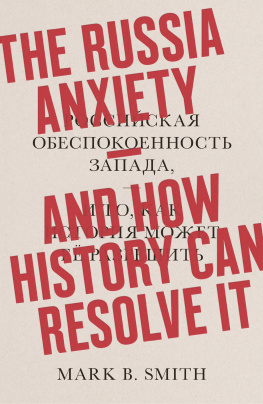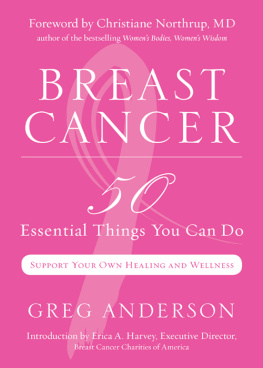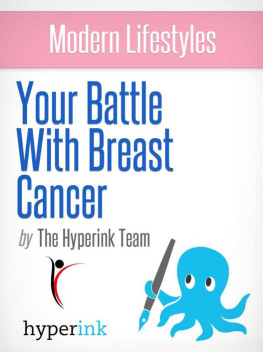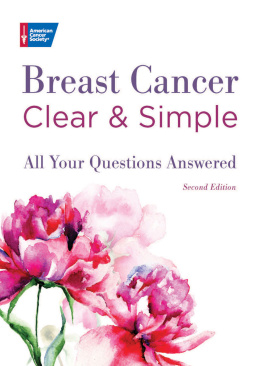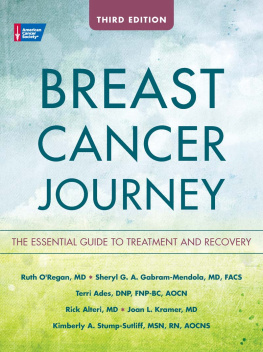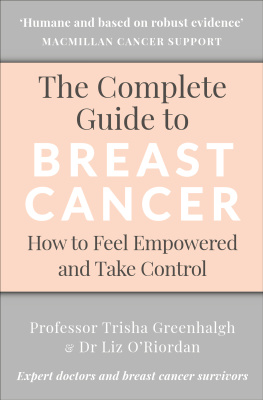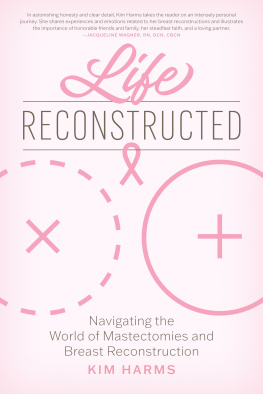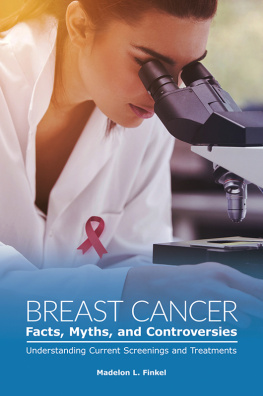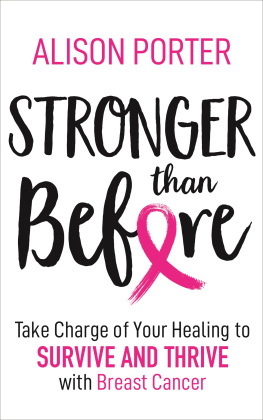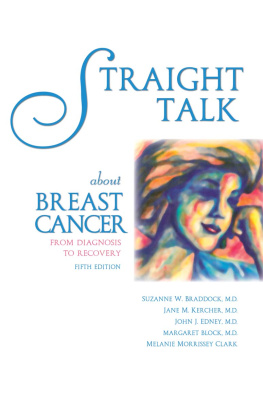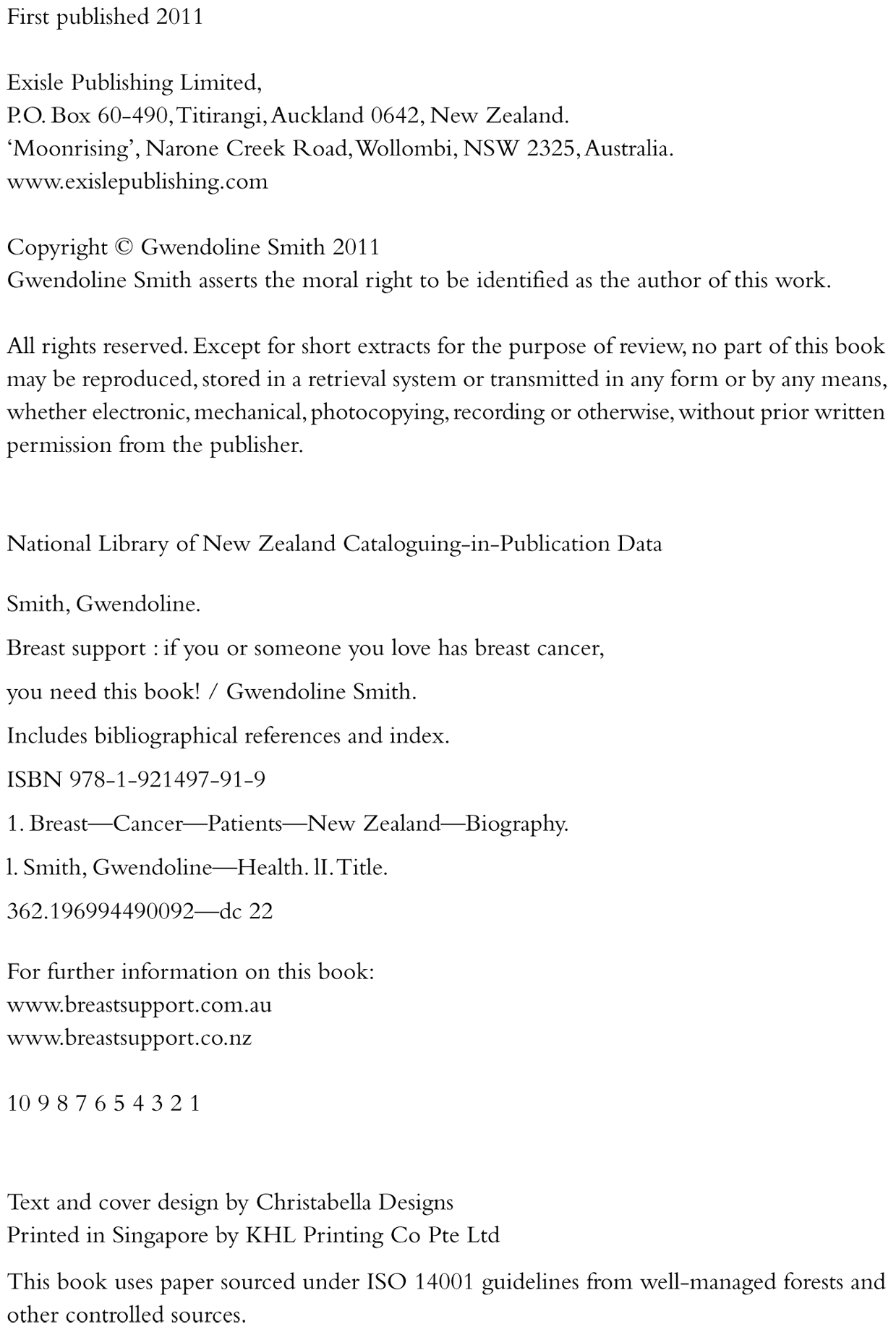About the author
Gwendoline Smith, M.Soc.Sc (Hons), Dip. Clin. Psych., is a clinical psychologist who was diagnosed with breast cancer in 2009 and has been undergoing treatment and reconstructive surgery ever since. Supported by friends and family, including her mother who also suffered from the disease, she decided to document her experiences along the Breast Cancer Highway because she could not find the kind of book she really needed among all those published on the subject. In her professional life, Gwendoline has treated many people suffering from depressive and other psychiatric disorders, and has also written widely about depression. Her previous best-selling books include Depression Explained and Sharing the Load. A skilled public speaker and lecturer, she lives in Auckland.
What people say about this book
Gwendoline with her psychology training, and intensely personal perspective, has done the research, gathered the resources and presented them in a very practical way. Breast Support is not only a very good book, it is also very cool!
Wayne Jones BHB, MBChB, FRACS General, Breast & Endocrine Surgeon
Gwendoline has told her own story, along with her review of the sometimes overwhelming information in this field. The book offers an insight and understanding for those facing the challenges that follow the diagnosis of breast cancer.
Dr Phyllida Cotton-Barker, General Practitioner and Member of Medical Advisory Committee which advises the New Zealand Breast Cancer Foundation
Having read widely on breast cancer I was reluctant to expose myself to yet another take on the journey. How pleasantly surprised I was to read a refreshing take on a deeply personal and often traumatic diagnosis. I like the graphics, the tips, the humour and the candidness. Love your work, thanks Gwendoline.
Dr Chris Walsh MNZM Director, HERSolutions
This fabulous little book manages to be both practical and humorous. An enormously useful resource for anyone diagnosed with breast cancer, or supporting someone with breast cancer.
Dr Ian Goodwin MBChB, FRANZCP Specialist Psychiatrist
I liked the chapter on how to manage worry after a diagnosis of breast cancer. It is pithy, concise, and well focused. It is a very helpful chapter, for all of those involved.
Dr Rob Shieff MBChB, FRANZCP Psychiatrist and Cognitive Behaviour Therapist
Brilliant! I wish this book was published when I went for my biopsy. Its such an easy read.
Chrissie T.
Gwendolines humour helps to guide you through the sense of shock on receiving news of breast cancer. Her story shows how manageable the process can be, with the expertise of wonderful doctors and nurses and those who love and support you, back to life and living with breast cancer.
Marilyn W (Diagnosed with breast cancer 2009)
Very good information and guidance for a support person Your humour is the best medicine.
Rexy W (Marilyns Support Team Leader)
To my wonderful mother Bette,
to my marvellous surgeon Wayne Jones,
and to a beautiful soul Rena, who died of cancer
during the writing of this book.
Acknowledgements
I have so many people to thank. I love all of you equally, and I thank all of you equally because you are all part of the reason I can be here today to write this book.
So, in no particular order:
My darling Murray Grindlay, who accepted and loved me without breasts and ignored my scars.
My wonderful dog Gerry, who loves me anyway.
A main muse and a wonderful photographer, Damien Nikora and his beautiful wife and family. You introduced me, in the form of art, to everything I have been through and I love you for that, Damien. I thank you for the healing that mother Bette and I went through. Special!
Lindsay, my wonderful friend and office manager, who made sure I was able to re-establish my life, and her darling husband Al, who has his own battle with cancer.
Dr Rob Shieff and Dr Ian Goodwin, who have also given me another chance at restarting my life.
My amazing GP, Dr Jeffrey Fetherston.
All the wonderful medical professionals I came in contact with.
Dr Chris Walsh and her partner Sue for their contribution to the section of the book regarding lesbian relationships, and for their wonderful battle for Herceptin funding.
All my dear friends and supporters, without whom I cant imagine what life would have been like.
My family, my inspirational mother Bette and her sisters with their own breast cancer experiences.
All the other women who, as members of the Breast Cancer Club, shared with me and inspired me with their hope and enthusiasm.
My darling Jennifer, one of the first people close to me to go through all this, who introduced me to the BCC.
My dear friend Lisa Couldrey for her illustrations, and David Shields for his photography.
My dear friend Ross Kinnaird, who illustrated my thoughts in the cartoons about psychiatric disorder and oncology.
Georgia Shattky, who patiently put together endless rewrites and tolerated my panics during the establishment of the drafts.
I would also like to acknowledge my colleagues at Exisle Publishing, who have enabled this book to become a reality.
Illustrations
The author and publishers gratefully acknowledge the assistance of the following people and organisations for the photographs and illustrations in this book:
Damien Nikora: and special thanks for his assistance with photographic reproduction.
Lisa Couldrey:
Ross Kinnaird:
Verna Langslow:
Annabel Mackenzie:
Kathryn Quirk:
Mark Roman:
David Shields:
Siemens Healthcare:
Foreword
Unfortunately breast cancer is a common disease. Within our social circles we all know a female family member or friend who has had this disease. It is a problem that touches us all. But when it happens none of us is prepared for the complexity of information and the rollercoaster of emotions that ensue. What does often surprise us is the outpouring of love and support from those people around us. It sometimes comes from surprising places, from people who have previously been acquaintances rather than friends, but who help with their extraordinary strength. They are true supporters.
Being diagnosed with breast cancer is a life-changing event. It is no laughing matter; however, approaching this problem, like so many other difficulties in life, with a sense of humour can ease the burden. This book does just that. It is a story of one womans journey through the lows and highs of investigations, diagnosis and decision making, peppered with practical and humorous anecdotes.
Gwendoline uses the analogy of travelling down the Breast Cancer Highway, a variant of the well-known cancer journey, in her discussion. This is very apt because the concepts of moving quickly, the fear of being out of control, the need for lane or direction changes, negotiating on-ramps and off-ramps, and staying safe are quite relevant to the situation. This is in some ways a travelogue of experiences, and in others a map and checklist of what and who to take along.
We live in an age where there is an overload of information. Advice and treatment choices are available at our fingertips. The difficulty is navigating through the internet pages and sorting the relevant and factual from the weird and fantastic. Gwendoline, with her psychology training and intensely personal perspective, has done the research, gathered the resources and presented them in a very practical way. This will be enormously helpful to other women and their support teams as they embark on their own cancer journey.







